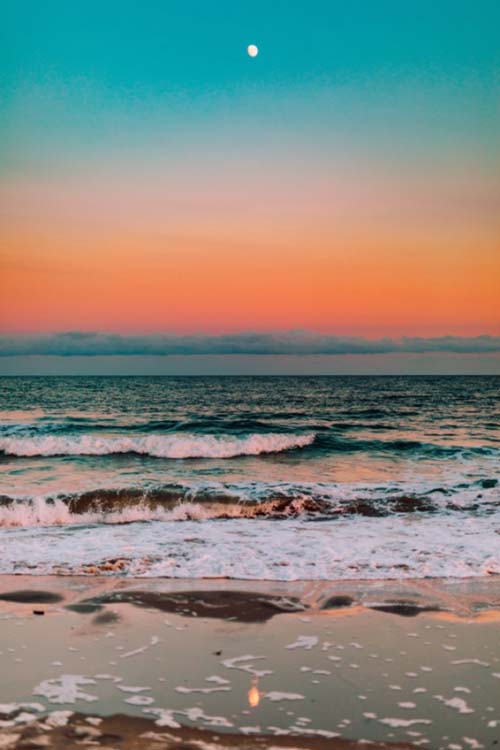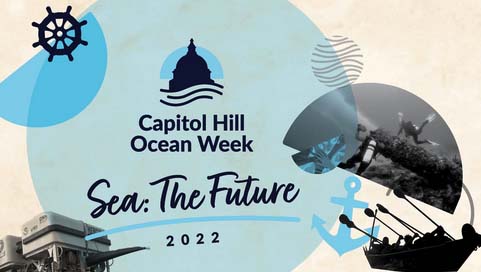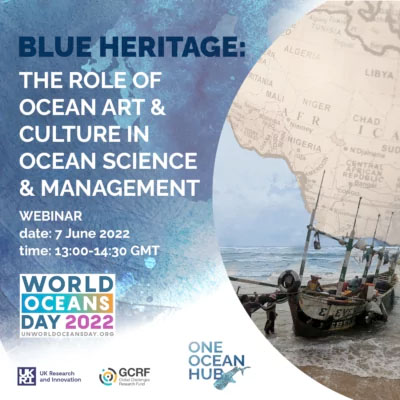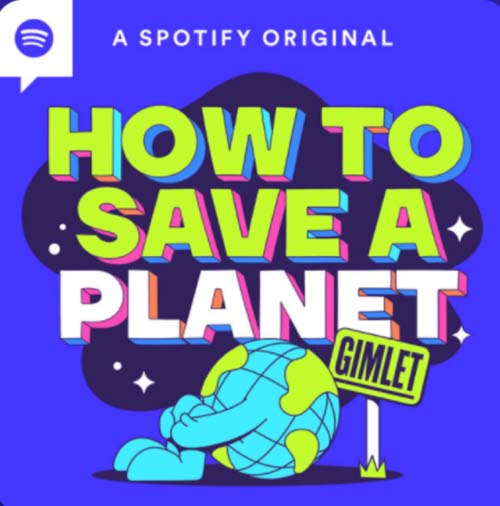 | | |  Rachel Carson drew strength and solace from the sea and shore. On her birthday, as we head into National Ocean Month, it is appropriate that I write a final greeting and reflect on my own return to the sea as I end my year as an RCC Fellow and co-lead of the RCC Coasts and Oceans program and its newsletter, the Observer. Rachel Carson drew strength and solace from the sea and shore. On her birthday, as we head into National Ocean Month, it is appropriate that I write a final greeting and reflect on my own return to the sea as I end my year as an RCC Fellow and co-lead of the RCC Coasts and Oceans program and its newsletter, the Observer.
I made my first trip out to the ocean in a year at the start of this month. A whole year of writing and reading and advocating for the ocean, and yet I had been miles and miles away from its soft sand and crashing waves. Returning to the ocean felt like a warm welcome home. I let the sun warm my skin and the sand squish between my toes. Most of all I let the ceaseless ocean breeze remind me—for the first time in a long time—to take a deep breath and let it go.
The ocean as our beautiful blue source of life is also a source of healing. We can always return to our origins there. Let ourselves feel the strange and wild beauty of nature and know that we are not separate from it. Whether it is at the beach, a park, a lake, or a forest path, find a place to start off summer by reconnecting with nature. Recharge and find an abundant energy to keep advocating for the world we love and the world that sustains us. Thank you for joining me this past year on my journey to do just that. Best, Audrey | | | | | | | | Corals vs. Climate Change | | | | | | Coral Reefs Provide Stunning Images of a World Under Assault Humans don’t know what they’re missing under the surface of a busy shipping channel in the “cruise capital of the world.” Just below the keels of massive ships, an underwater camera provides a live feed from another world, showing marine life that’s trying its best to resist global warming. That camera in Miami’s Government Cut is just one of the many ventures of a marine biologist and a musician who’ve been on a 15-year mission to raise awareness about dying coral reefs by combining science and art to bring undersea life into pop culture. | | | | | | Cubans Grow Corals, Restore Ailing Barrier Reef on Shoestring Budget A small group of Cuban dive instructors, working on a shoe-string budget and with flotsam salvaged from the beach, have launched a small-scale project to grow corals and replant them, in hopes of restoring a patch of Cuba's barrier reef. Luis Muiño, 44, one of the project's leaders, grew up as a fisherman nearby, and said he saw his beloved reefs outside the mouth of Matanzas Harbor, on Cuba's north coast, slowly decline and fish grow scarce over nearly three decades. | | | | | | 20 Years Since Navy Ship Sunk For Artificial Reef in Keys The 20th anniversary of the storied intentional sinking of a former Naval ship to become an artificial reef in the Florida Keys National Marine Sanctuary is being celebrated Tuesday in Key Largo. The 510-foot-long (155-meter-long) Spiegel Grove earned international notoriety when it sank prematurely May 17, 2002, and landed with its upside-down bow protruding above the ocean’s surface about 6 miles (10 kilometers) off Key Largo. | | | | | | The Manufactured Plastic Plague | | | | Big Oil Sold the World on a Plastics Recycling Myth. It May Be Too Late to Undo the Damage A few weeks ago, my friend Brett Pogostin showed me a photograph of his girlfriend, Angie, taken on Padre Island National Seashore on the Texas Gulf Coast. They had driven 200 miles from Houston to visit this 60-mile stretch of undeveloped barrier island, which reaches south from Corpus Christi, Texas, towards the Mexican border. But when they stopped and got out of their car, they found the shoreline littered with plastic—old diapers, water bottles, and plastic detergent jugs. | | | | | | The US Only Recycled About 5% of Plastic Waste Last Year By now, many of us have heard the depressing statistic about plastic recycling: Of the 5.8 billion metric tons of plastic waste that the world generated between 1950 and 2015, only about 9 percent has been recycled, leaving the rest to be incinerated, landfilled, or littered directly into the environment. Until recently, that number was still accurate for the United States, which — according to the most recent data from the Environmental Protection Agency, or EPA — recycled about 8.7 percent of its plastic refuse in 2018. | | | | | | The Massive, Unregulated Source of Plastic Pollution You’ve Probably Never Heard of “We’re making these nurdles and basically spilling oil, just in a different form.” On an overcast day in April, on the edge of Chalmette Battlefield, a few miles outside the city, Liz Marchio examined a pile of broken twigs and tree branches on the bank of the Mississippi River. “Usually I try to look — oh, there’s one,” said Marchio, a research associate for the Vertebrate Museum at Southeastern Louisiana University. She picked up something with a pinch of her thumb and forefinger and placed it in her palm for me to see. | | | | | | In ‘Silent Spring,’ Rachel Carson Described a Fictional, Bucolic Hamlet, Much Like Her Hometown. Now, There’s a Plastics Plant Under Construction 30 Miles Away The Shell facility will emit 2.2 million tons of greenhouse gases and produce 1.6 million tons of plastic pellets each year, and the nature trail past Carson’s homestead is replete with signs of fracking. If you stand in the sloping yard of the Rachel Carson Homestead and look southwest, down toward the Allegheny River, you can see the towers of the Cheswick Generating Station. | | | | | | | | You Asked 1,000 Questions about Peatlands, and Our Bog Experts Answered (Some of) Them Bogs, swamps, mires. English has turned these muddy landscapes into unpleasant metaphors. No one wants to be “bogged down” or “mired” in a problem. But we’re beginning to understand the outsized importance of these waterlogged expanses in keeping the planet alive. This is why Headway, an initiative from the Times to explore the world’s challenges through the lens of progress, decided to take a look at peatlands, these ecosystems that store huge amounts of carbon. | | | | | | In the Fight Against Climate Change, Seaweed Could Be a Surprising — But Vital — Weapon Like many coastal communities around the world, people living by the sea in the United Kingdom have harvested and consumed seaweed for centuries. In Wales, Welsh laverbread — made from cooking a type of seaweed called laver — is a culinary delicacy so revered that it enjoys Protected Designation of Origin status. Seaweed’s uses do not end at the dinner table, either: Today, it’s found in everything from cosmetics and animal feed to gardening products and packaging. | | | | | | A Better Solution to America’s Big Hurricane Problem Coral reefs can protect coastal cities from deadly floods, if only we keep them alive. On a sunny afternoon in April, I stood indoors in front of the only machine in the world that can create a Category 5 hurricane in a lab. Housed in a large building at the University of Miami on Virginia Key, it consists of a swimming-pool-sized tank, a wave generator, and a loud jet engine that pipes in hurricane-strength winds. The tank is an essential tool for research into how coral can lessen hurricanes’ damage to coastal communities. I was here to see how it works. | | | | | | By Connecting Marine Protected Areas, Governments Could Improve Ocean Health Over the past decade, many countries have relied on the best available science to create large-scale highly and fully protected marine protected areas (MPAs) that prohibit damaging human activities, such as industrial fishing. Those efforts played a key role in protecting hundreds of thousands of square miles of ocean, from the unique Galapagos Islands in the eastern tropical Pacific, to the South Sandwich Islands in the freezing polar south, to isolated Tristan da Cunha in the Atlantic Ocean. | | | | | | The Swift March of Climate Change in North Carolina’s ‘ghost forests’ As sea levels rise and storms become more intense, scientists are racing to study the rapid loss of trees and marshland along the Outer Banks. As the first light of day flickers across the Croatan Sound, Scott Lanier surveys the gray, barren tree trunks that stand in every direction, like massive gravestones marking the once-vibrant landscape. “The forest is just retreating,” says Lanier, manager of this 160,000-acre federal wildlife refuge near North Carolina’s Outer Banks. | | | | | | | | NOAA Fisheries Designates Critical Habitat for Ringed and Bearded Seals in U.S. Arctic National Oceanic Atmospheric Association Fisheries has designated critical habitat in U.S. waters off Alaska’s coastline for the Arctic ringed seals and the Beringia distinct population segment of bearded seals, both of which are listed as threatened under the Endangered Species Act. (ESA). The Act requires NOAA Fisheries to designate critical habitats for listed species in areas within the jurisdiction of the United States. | | | | | | | | Volunteer Pilots Rescue Sea Turtles Stunned by Cold Water Hundreds of volunteer pilots across the U.S. have offered their time and planes to fly rescue missions for sea turtles in need of help. “We are all about taking care of these endangered species,” says Leslie Weinstein, president of Turtles Fly Too. The nonprofit coordinates emergency flights for sea turtles that wash up on the shores of Cape Cod and elsewhere, suffering from cold-stunning. It’s a reaction the animals can experience in waters below about 50 degrees Fahrenheit. | | | | | | Emperor Penguins Could Be Extinct in Our Lifetimes The Antarctic sea ice the penguins need has been disappearing and off-schedule. Baby birds "drown and freeze" as a result. Emperor penguins are at severe risk of extinction by 2060, biologist Marcela Libertelli, who studies the birds at the Argentine Antarctic Institute, told Reuters in a Friday report. The scientist attributed that increasing extinction threat largely to climate change, as the seasonal sea ice emperor penguins need becomes less and less reliable. | | | | | | What’s Killing the World’s Biggest Fish? The largest fish on Earth is a shark. Capable of reaching a length of up to 60 feet — roughly the height of a four-story building — whale sharks, named for their size, are so large that they make great whites look like minnows. But even giants can disappear. Over the last several decades, more than half of all whale sharks have vanished from the ocean. Some populations have fallen by more than 60 percent. This decline has been something of a scientific mystery. It can’t be explained by known threats like overfishing. | | | | | | Warning on Mass Extinction of Sea Life: ‘An Oh My God Moment’ A new study finds that if fossil fuel emissions continue apace, the oceans could experience a mass extinction by 2300. There is still time to avoid it. At first, the scientists chose a straightforward title for their research: “Marine Extinction Risk From Climate Warming.” But as publication approached, something nagged at them. Their findings illustrated two drastically different outcomes for ocean life over the next three centuries depending on whether greenhouse gas emissions were sharply curbed or continued apace. | | | | | | | | Bad News For the 2022 Hurricane Season: The Loop Current, a Fueler of Monster Storms, is Looking a Lot Like it Did in 2005, the Year of Katrina The Atlantic hurricane season starts on June 1, and the Gulf of Mexico is already warmer than average. Even more worrying is a current of warm tropical water that is looping unusually far into the Gulf for this time of year, with the power to turn tropical storms into monster hurricanes. It’s called the Loop Current, and it’s the 800-pound gorilla of Gulf hurricane risks. | | | | | | Beach Houses on the Outer Banks Are Being Swallowed by the Sea A neighborhood of vacation homes off the coast of North Carolina has become a symbol of the effects of rising oceans. Like millions of other people this week, Hien Pham marveled at the online video of the two-story, pea-green beach house as it collapsed into a rising sea, left to bob in the agitated surf like a giant cork. This particular giant cork, formerly located at 24265 Ocean Drive, was Mr. Pham’s. He had purchased the four-bedroom place in November 2020 for $275,000. | | | | | | New Texas Plan for Federal Hurricane Harvey Aid Yields Same Old Result: Funds Diverted Away From Gulf Coast Of the more than 300,000 homes in Texas damaged by Hurricane Harvey in 2017, none were in Coryell County. Located 220 miles from the Gulf of Mexico, this small agricultural county was not the place Congress had in mind when it sent Texas more than $4 billion in disaster preparedness money six months following the storm, said U.S. Rep. Al Green, D-Houston. | | | | | | | | |  Sea the Future: June 7-9 in Washington D.C. and Online Sea the Future: June 7-9 in Washington D.C. and Online
As National Ocean Month, June is the perfect time to celebrate the gifts of our ocean and coasts. It's also a time to reflect and take action on the many threats that climate change and pollution pose to coastal communities and the marine environment. Capitol Hill Ocean Week will take place June 7 - 9 in Washington, D.C. and online. The event will feature topics like biodiversity loss, coastal environmental justice, and climate change. Speakers include scientists, policymakers, conservationists, educators, and the next generation of environmental leaders. The public is invited to gather and engage in dialogue about potential ocean solutions. For more details, see the event overview and agenda and register HERE. | | | | | | |  One Ocean Hub is your one-stop shop for incredible ocean webinars throughout the month of June! Join ocean enthusiasts coming from across the globe to talk about what’s happening beneath the waves and how we can make a difference on land and at sea to improve our beautiful blue environment. Explore an array of topics with experts at the top of their fields working to bring you the newest updates. “This year’s theme ‘Revitalization: Collective Action for the Ocean’ sheds light on how the ocean connects, sustains, and supports us all.” One Ocean Hub is your one-stop shop for incredible ocean webinars throughout the month of June! Join ocean enthusiasts coming from across the globe to talk about what’s happening beneath the waves and how we can make a difference on land and at sea to improve our beautiful blue environment. Explore an array of topics with experts at the top of their fields working to bring you the newest updates. “This year’s theme ‘Revitalization: Collective Action for the Ocean’ sheds light on how the ocean connects, sustains, and supports us all.”
Here are a few upcoming talks you might want to tune in for:
Exploring challenges, opportunities, and alliances for the protection of small-scale fishers’ human rights
June 6th from 6:00-8:00 pm EST “This roundtable discussion is aimed to advance awareness of the need for a holistic approach to the protection of the human rights of small-scale fishers and fish workers, and to explore the different UN mandates that can contribute and opportunities to better international support for small-scale fishers representatives and advocates.”  Blue Heritage: The role of ocean art and culture in ocean science and management June 7th from 6:00-7:30 pm EST “More attention needs to be given to the human-cultural dimension of the ocean and its use. Recognizing the role of ocean cultures and heritage in contributing to sustainable ocean governance, this event will discuss key messages in a forthcoming book entitled the Palgrave Handbook of Blue Heritage. The book highlights that while nature is inherently valuable, humans hold diverse, intrinsic and cultural connections with the ocean and coasts.”  | | | | | | Tell NOAA What to Do on Environmental Justice!  “NOAA Fisheries is asking for public comment until Aug. 19 and will host four webinars on its first-ever draft Equity and Environmental Justice Strategy. The strategy is to provide guidance for incorporating and prioritizing equity and environmental justice in ongoing and future activities in support of NOAA Fisheries’ mission. NOAA Fisheries, also known as the National Marine Fisheries Service, is an office of the National Oceanic and Atmospheric Administration within the Department of Commerce.” “NOAA Fisheries is asking for public comment until Aug. 19 and will host four webinars on its first-ever draft Equity and Environmental Justice Strategy. The strategy is to provide guidance for incorporating and prioritizing equity and environmental justice in ongoing and future activities in support of NOAA Fisheries’ mission. NOAA Fisheries, also known as the National Marine Fisheries Service, is an office of the National Oceanic and Atmospheric Administration within the Department of Commerce.” Register HERE for the 6 p.m. June 21 webinar Register HERE for the 7 p.m. June 30 webinar Register HERE for the 4 p.m. July 19 webinar Public written comments are also open until August 19 HERE. Let your voice be heard! | | | | | | | | |  Be transported to a near future where the global maps have been morphed as the sea levels rise and melt whole countries back down into the depths of their waters. Japan is gone. And with it, an entire population loses their citizenship, identity, culture, and sense of home. Scattered All Over the Earth tells the story of Hiruko, a climate refugee, who searches across the globe to find a sense of community that climate change robbed from her and millions of other refugees. Be transported to a near future where the global maps have been morphed as the sea levels rise and melt whole countries back down into the depths of their waters. Japan is gone. And with it, an entire population loses their citizenship, identity, culture, and sense of home. Scattered All Over the Earth tells the story of Hiruko, a climate refugee, who searches across the globe to find a sense of community that climate change robbed from her and millions of other refugees.
Yoko Tawada reckons with climate change in a heart-wrenching story that reminds readers that no matter what the world looks like in the near future, humans have the innate desire for connection and belonging. Tawada chooses to see the climate refugee world as a present and real threat that we face in the world today that will continue to accelerate as the seas rise, forests burn, droughts kill, and storms demolish communities. Yet in all this destruction, humans—and the greater natural world—persist.
Read more about Tawada’s scintillating writing in
Scattered All Over the Earth or purchase HERE. | | | | | | |  In this two-part series, adventure into the coastal revolution envisioned by fisherman turned kelp farmer, Bren Smith. After decades on the water watching “circles of death” surrounding the fishing industry, Smith explores a not-so-new way to feed the planet while trying to save it: kelp farming. Follow Smith’s journey to try to create a kelp craze in the United States to better the planet, our coasts, and our own health! Hosts Ayana Elizabeth Johnson and Alex Blumberg bring the enthusiasm and Smith brings the seaweed on this funny and uplifting episode from How to Save a Planet. Listeners should be advised that the episode contains some sailor’s language about Smith’s unruly college years. In this two-part series, adventure into the coastal revolution envisioned by fisherman turned kelp farmer, Bren Smith. After decades on the water watching “circles of death” surrounding the fishing industry, Smith explores a not-so-new way to feed the planet while trying to save it: kelp farming. Follow Smith’s journey to try to create a kelp craze in the United States to better the planet, our coasts, and our own health! Hosts Ayana Elizabeth Johnson and Alex Blumberg bring the enthusiasm and Smith brings the seaweed on this funny and uplifting episode from How to Save a Planet. Listeners should be advised that the episode contains some sailor’s language about Smith’s unruly college years.
Tune in for a laugh and a lesson on kelp HERE. | | | | | |  Audrey Magnuson, RCC Presidential Fellow Audrey Magnuson, RCC Presidential Fellow
Audrey Magnuson co-leads RCC’s Coasts and Ocean program and works on environmental justice and policy. She is a senior at Duke University majoring in Public Policy with minors in Environmental Science and Art History. audrey.magnuson@duke.edu | | | | | |  The Rachel Carson Council Depends on Tax-deductible Gifts From Concerned Individuals Like You. Please Help If You can. The Rachel Carson Council Depends on Tax-deductible Gifts From Concerned Individuals Like You. Please Help If You can. | | | | | | | |  Sign Up Here to Receive the RCC E-News and Other RCC Newsletters, Information and Alerts. Sign Up Here to Receive the RCC E-News and Other RCC Newsletters, Information and Alerts. | | | | | | | | | | | |